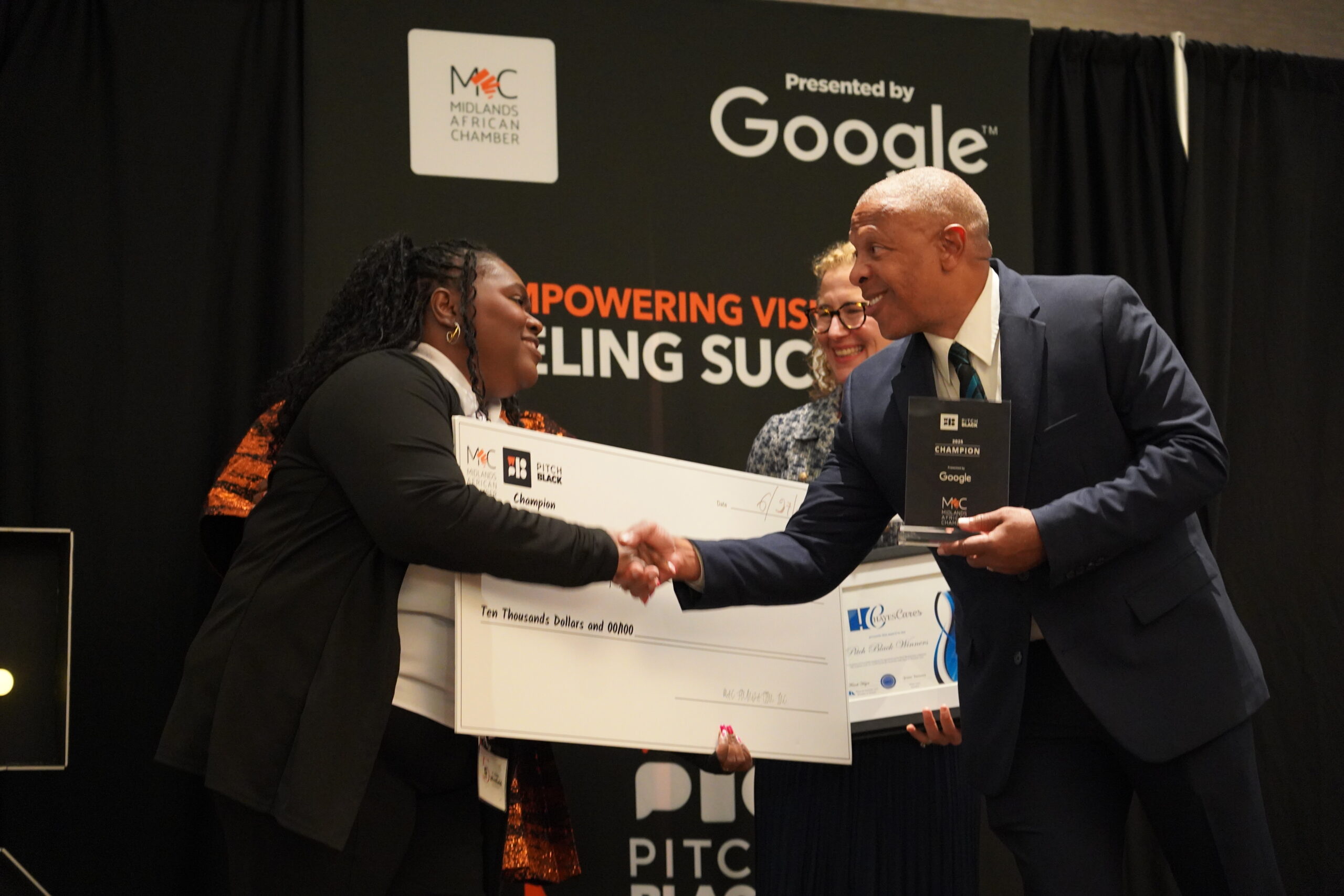
Envudu founder Ryan Ruff had a front row seat to the struggle of ordinary people and their finances.
Ruff was working for his father’s business that helped people get out of debt. However, they noticed that even as they lowered debt in one area, the people were overspending in other areas of their life.
“My father tasked me with coming up with something that works to help these people from falling back into the same position again,” said Ruff.
Ruff tried many different budgeting systems for his clients, but nothing seemed to stick.
Everything changed when he started helping a woman who had a savings account that she kept raiding. Christmas was very important to her, so she created a separate Christmas account.
“She continued to raid her savings, but she never touched her Christmas money,” said Ruff. “A light went off [for me]. I realized she has no emotional attachment to [her general savings], but she had an emotional attachment to Christmas money.”
He started helping his other clients open up accounts with labels like “Hawaii Here We Come.”
“And people stopped raiding them,” said Ruff.
Ruff defines the insight in a simple phrase.
“Spending is emotional. Saving is emotional, too,” said Ruff. “When the money you’re saving is attached to something you’re emotionally attached to, the chances of you spending that money go down dramatically.”
Out of that insight, envudu was born.
How Envudu works
The envudu platform creates virtual envelopes tied to categories that you care about. The envelopes are automatically loaded with money whenever you get paid. When you decide to spend money, you can select the envelope you want to draw from.
By prompting the user at the moment of decision, envudu gives users the opportunity to change their behavior. Getting something you want, even if you don’t have the money, feels good. But if you know that the purchase is going to harm something you care about, you’re likely to find an alternative.
“Envudu changes the whole narrative,” said Ruff. “It doesn’t take discipline to use envudu. You literally spend your money however you want. It simply puts you in the environment where you see the opportunity cost, and you pick what you want most.”
Ruff hopes to generate revenue by selling advertising and special offers on the app, targeting consumers right at the point of decision. For example, special offers could be presented for Disneyland to users who are nearing their goal in their Disneyland envelope.
“The data we have from customers is the most valuable data you can have,” said Ruff.
What makes envudu different
Eighty percent of Americans live paycheck to paycheck, according to Ruff.
“Most people, at some point throughout a year, say, ‘I need to budget.’ They start, and they fall off within a few months,” said Ruff.
Other budgeting apps, like Mint, only help you categorize your spending after the fact.
“We don’t see that as a feature. We see it as a design flaw,” said Ruff. “Mint has such a low success rate because it’s designed to spend now and review later.”
According to Ruff, people eventually give up on apps like Mint because whenever you log in, you review all the mistakes you’ve made that you can’t change.
Envudu works in reverse by categorizing your income automatically as it comes in. It allows you to see how you’re spending before you spend, and to understand what you will lose out on if you overspend.
“It’s not a discipline problem. It’s an information problem,” said Ruff.
Challenging the paradigm
Most financial products on the market today seem designed for consumers to overspend, take on more debt and be irresponsible. So why would a bank want to promote a service like envudu?
“What they do like about envudu is that it helps them understand their client better,” said Ruff. “They know who’s saving for a downpayment on a house, based on their envelopes. They can use that for better marketing messages.”
The other thing that banks want is loyal customers. According to Ruff, if you have at least three trade lines with a bank, you’re unlikely to leave that bank. If you set up a long list of envudu envelopes with a bank, you’re not going to want to change your whole system again.
“The chances you’re going to leave that institution go down dramatically,” said Ruff.
Ruff also has a bigger vision in mind as well.
“I want to change the relationship between people and their bank,” said Ruff. “Right now it’s an adversarial relationship. I really believe we can be the first financial institution to align the goals of the customer with the goals of the bank.”
The frugal founder
After competing in a startup pitch competition in Salt Lake City in 2015, Ruff was approached by an investor who decided to invest in the company.
Shortly after, Ruff and his wife moved to Stanton, Nebraska, a small town about a hundred miles from Omaha, to move into his mother-in-law’s basement.
“I actually drive out here [to Omaha] and drive Uber and Lyft on the side to make ends meet,” said Ruff. “I stay out here 3-4 days a week, and go home 3-4 days a week. So we’re making some real sacrifices.”
Ruff works out of the Omaha Startup Collaborative. He sleeps in his car in a Walmart parking lot and uses a pass to the local YMCA.
“The Startup Collaborative has been awesome,” said Ruff. “Nathan Preheim and Erica [Wassinger] have helped me make some great connections that have led to discussions with First National [Bank].”
Saving marriages
Envudu currently has 30 beta users. They also have two full time and two part time employees.
The company plans to release a prepaid card in September. In the next few months Ruff hopes to find a partnership with a major bank. All for the goal of changing the world.
“Our CXO says we’re not in the business of finances, we’re in the business of saving marriages,” said Ruff. “One of the number one things people fight over is finances. This helps spouses get on the same page financially without one of you being the bad guy.”
That’s what ultimately drives Ruff on his mission to change people’s relationship to their money.
“I really feel that we’re saving marriages,” said Ruff.
—
Ryan Pendell is the Managing Editor of Silicon Prairie News.





5 responses to “Envudu taps into the psychology of saving money”
Sounds a lot like YNAB, an existing product.
My understanding is that YNAB, like Mint, let’s you review your spending decisions only after they happen – ie., you categorize your spending after the spending has taken place. What the article did not explain well is that Envudu lets you spend (or maybe “forces” you to spend) your money from a specific envelope. In other words, if you want to buy something, you have to look at your envelopes, then choose the envelope you want to spend from, then swipe your card. The money then comes out of the envelope you chose. This makes you stay on top of your envelopes at all times, and as the article states, changes the psychology of your spending behaviors by making you ask yourself what’s most important to you, each and every time you spend money. It literally changes people’s behaviors in a very short time – even people who have had long histories of failure with other budgeting tools like Mint or YNAB.
I’m actually one of the beta testers for this product, and I can say it’s absolutely not the same thing as YNAB. There are no other systems that work like this one does, at least not an electronic version (it is a digital envelope system). I live with ADHD, a condition that makes impulse control among other things a problem due to issues with regions of the brain that control these functions. This product has supplied me with the tools that have allowed me to successfully budget and control spending, something I have not been able to achieve with YNAB, Mint or various spreadsheets. If you read the article entirely, you’ll notice the point you made has already been addressed and corrected.
A front-end to your existing checking account. That’s a lot of work to keep balanced correctly. And is why I never liked how Mint.com’s goal feature worked. It was just insight to an external bank account. Because once it’s out of sync, you’ll spend your time trying to get it back into sync. I think the confusing part of this article makes it sound like the Envudo app is actually controlling the card. But I don’t think that’s the case. It’s just a representation of the card balance. Meaning if you go to the gas station and spend $37.53, the app asks where to deduct the balance from which envelope, then you tell the app to deduct that amount from your “gas” category for which you set a monthly goal amount. It’s like Mint but in reverse. I would agree with this much involvement, it will change a customer’s behavior. But still seems like a small % of the population will want to engage is such manual interaction and is why Mint’s “set it and forget it” is so incredibly popular.
I initially thought the same, that I would not be able to commit to engaging in manual envelope assignments. But I found that it is actually enjoyable for me at this point and I look forward to seeing how much money I save by making the decision to make a purchase and know exactly how it will affect my budget before it happens. Mint can’t do the things that Envudu offers. I can also attest that my marriage is benefitting from the control of our spending. We used to have a lot more financial stress from not understanding what we had to work with despite trying to use things like Mint, YNAB or spreadsheets. I love this freaking product, it’s enabled us to regain control of our lives as newer home owners.